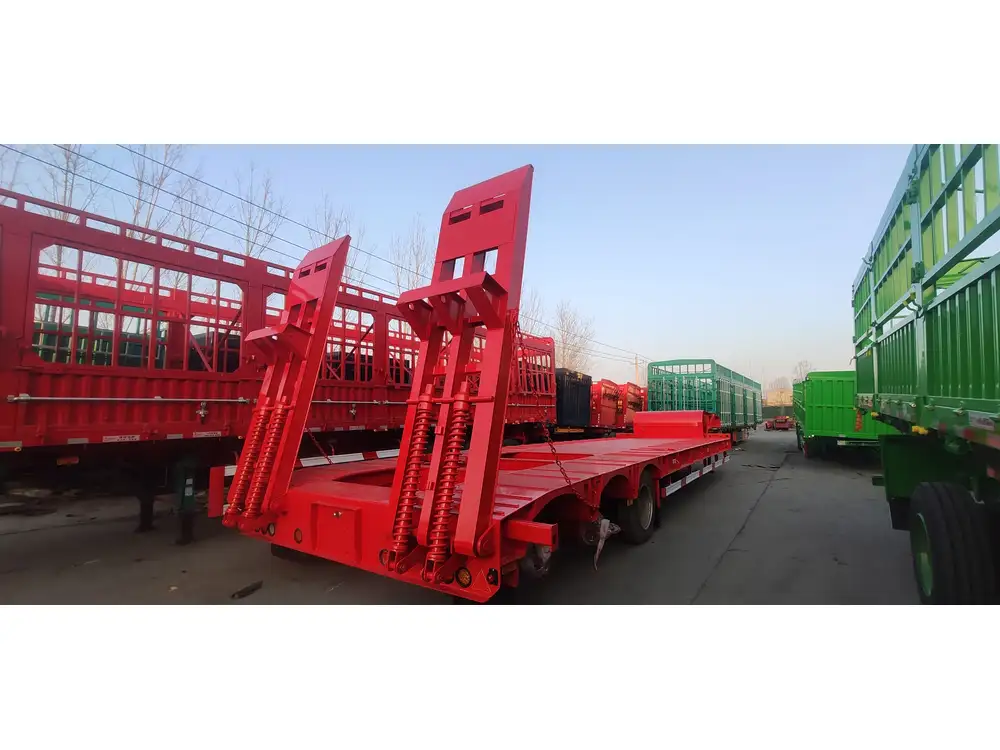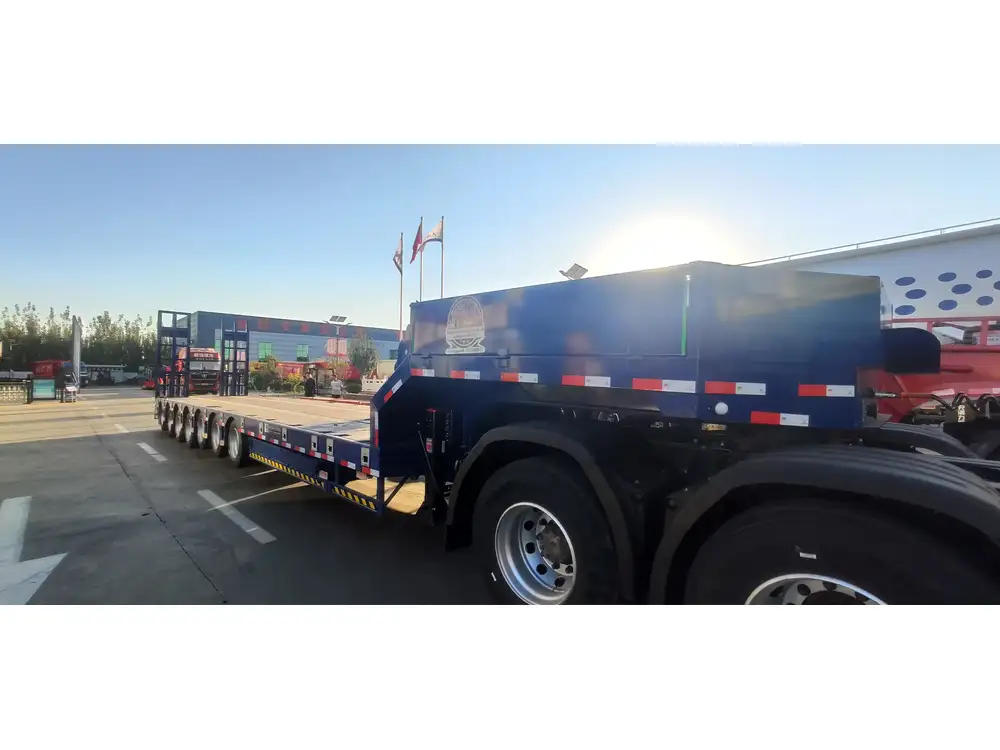As industries evolve, the demand for versatile transportation solutions continues to grow. Among these, self-contained trailers have emerged as a popular option in various sectors, including construction, disaster relief, and mobile businesses. But what exactly is a self-contained trailer, and why has it gained significant traction in recent years? In this comprehensive guide, we will delve into the definition, characteristics, advantages, and diverse applications of self-contained trailers, ensuring you have all the information needed to understand this innovative solution.
Defining Self-Contained Trailers
A self-contained trailer is a specialized type of trailer designed to operate independently without relying on external utilities. It is equipped with essential services and amenities, allowing it to function autonomously. Self-contained trailers typically come with their own power generation systems (such as generators), plumbing, and sanitation facilities.
Key Features of Self-Contained Trailers
| Feature | Description |
|---|---|
| Power Generation | Equipped with onboard generators or renewable energy systems to provide electricity. |
| Sanitation Facilities | Often includes bathrooms and waste management systems, eliminating the need for external sanitation connections. |
| Water Supply | Features built-in water tanks or filtration systems to supply fresh water. |
| Heating and Cooling | Equipped with HVAC systems for climate control, making them comfortable for year-round use. |
| Mobile Accessibility | Designed for easy towing, making mobility a key characteristic for various settings. |
| Durability and Construction | Built from robust materials to withstand harsh environments and heavy use. |

Benefits of Self-Contained Trailers
Self-contained trailers offer numerous advantages that make them an ideal choice for certain applications. Here’s an analysis of their key benefits:
Independence from External Utilities
One of the most significant advantages of self-contained trailers is their ability to function independently. This autonomy enables users to set up in remote locations without the need for nearby power or water supply. Whether in a disaster relief scenario or a remote job site, this independence provides flexibility and convenience.Easy Mobility
Designed for easy towing, self-contained trailers can be relocated with minimal effort. This mobility is crucial for businesses that require frequent site changes, such as construction firms, event organizers, or mobile businesses.Customizable Designs
Manufacturers often provide customization options to meet specific user needs. From floor plans to equipment configurations, self-contained trailers can be tailored to optimize their utility for different industry requirements.Cost-Effectiveness
In the long run, self-contained trailers can be more economical. They reduce the dependence on rental facilities or on-site utilities, leading to cost savings in operational expenses, especially in prolonged projects.On-Site Comfort
With amenities like heating, air conditioning, and restroom facilities, users can maintain a comfortable working environment. This is particularly important in industries where employee comfort can affect productivity and morale.
Applications of Self-Contained Trailers
The versatility of self-contained trailers allows them to be utilized across various sectors. Below are notable applications:
1. Construction Industry
In construction, self-contained trailers serve multiple purposes. They can act as:
- On-Site Offices: Providing a space for project managers to coordinate activities.
- Break Rooms: Offering amenities for workers to rest and receive meals.
- Equipment Storage: Securely housing tools and materials, reducing theft and damage.

2. Emergency Response and Disaster Relief
During natural disasters, self-contained trailers become essential for:
- Temporary Shelters: Providing immediate accommodations for displaced individuals.
- Command Centers: Functioning as operational bases for first responders and relief organizations.
- Medical Facilities: Supporting mobile clinics to provide urgent care in affected regions.
3. Mobile Businesses
Entrepreneurs utilize self-contained trailers to launch mobile services such as:
- Food Trucks: Equipped with kitchens to prepare and serve meals on the go.
- Mobile Retail Units: Offering retail spaces that can reach various events and markets.
- Pop-Up Exhibits: Serving as portable spaces for showcasing products at festivals or trade shows.
4. Recreation
Recreational use of self-contained trailers includes:
- Camping Units: Providing a comfortable space for families or groups on camping trips.
- Mobile Workshops: Allowing hobbyists to create art or craft projects in an outdoor setting.

Choosing the Right Self-Contained Trailer
Not every self-contained trailer is suitable for every application. An effective choice depends on specific user requirements. Here are critical factors to consider:
| Factor | Consideration |
|---|---|
| Purpose of Use | Define the trailer’s primary function—office, storage, shelter, etc.—to guide your selection. |
| Size Requirements | Consider the number of occupants or equipment needed and select an adequately sized trailer. |
| Mobility Features | Ensure compatibility with towing vehicles and assess weight capacity for ease of transport. |
| Utility Needs | Evaluate the necessary power, water, and heating systems based on anticipated usage. |
| Customization Options | Seek manufacturers that can tailor trailers to specific configurations and layouts. |
Key Questions When Choosing
- What will be the primary use of the trailer?
- How often will it be moved, and across what terrain?
- What amenities are necessary for comfort and functionality?
- Is there a need for eco-friendly technology?
Maintenance and Care for Self-Contained Trailers
Owning a self-contained trailer comes with responsibilities. Regular maintenance is crucial to ensure it remains functional, safe, and reliable. Key maintenance practices include:
Routine Inspections
Conduct regular inspections of the trailer’s structure, plumbing, and electrical systems. Look for signs of wear, water leaks, or electrical issues.Cleaning
Clean the trailer to prevent mold growth, ensure hygiene in sanitation facilities, and maintain the overall aesthetic appeal.Power System Checks
Maintain power generation systems by checking fuel levels, replacing filters, and ensuring generators are in working order to avoid service interruptions.Water System Maintenance
Flush and sanitize water tanks periodically, replacing filters to guarantee clean water supply.Tire and Brake Care
Inspect tires for wear and maintain proper air pressure. Ensure brake systems are functioning to ensure safe towing.

Conclusion
Self-contained trailers present a dynamic and efficient solution for various industries, allowing for mobility, comfort, and independence from traditional utilities. Understanding what a self-contained trailer entails—its features, benefits, and wide-ranging applications—empowers potential users to make informed decisions.
Whether you are considering self-contained trailers for construction projects, emergency response, mobile businesses, or recreational purposes, knowing the essential factors involved in choosing and maintaining these trailers will facilitate optimal use.
By embracing the flexibility and efficiency of self-contained trailers, industries can drive productivity while addressing unique operational challenges. As you contemplate your requirements, remember to assess the benefits of self-contained trailers thoughtfully, evolving your approach to meet the demands of an ever-changing landscape.
In summary, self-contained trailers are not just utilitarian objects; they represent a visionary step toward maximizing efficiency, comfort, and independence within your operations, whatever they may be.



